What do antioxidants actually do?
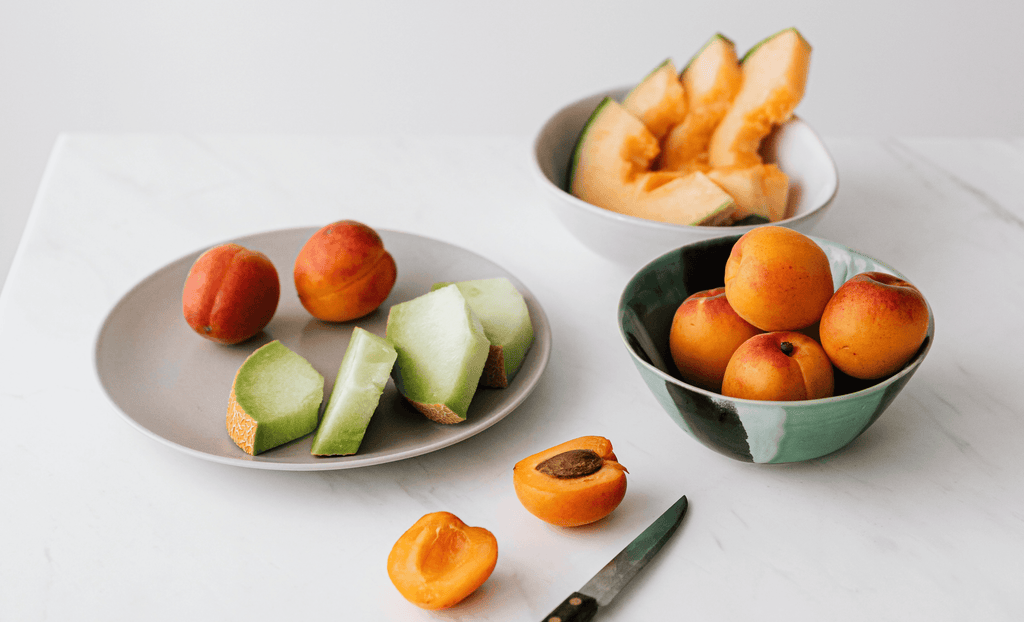
What do antioxidants actually do?
Shield Your Skin
Visit any beauty center and you’ll be met by a sea of products promoting their antioxidant-rich properties—all promising to slow the onset of wrinkles and sagging skin.
The good news, scientifically speaking, there is no question that antioxidants are a powerhouse within the vast anti-ageing and skin repair wings of the personal care industry. Which is obviously great. Who wouldn’t want to maintain a youthful complexion?
So, we welcome the antioxidants!
What are antioxidants?
Simply put, antioxidants help impede the cell damage caused by harmful molecules.
But what does that actually mean?
Our Skin
As the body’s largest organ, skin plays a crucial role in protecting against oxidative stressors such as UV radiation, x-rays, cigarette smoke, air pollution, and other toxins, industrial chemicals, emotional stress, and poor diet—all of which contribute to ageing and disease. And many of those we encounter every single day. [2] In short, as in our previous blog post, oxidative stress represents the imbalance between the production of free radicals and the body’s ability to use antioxidants to counteract their harmful effects. While our bodies are adept at producing antioxidants that balance the effects of oxidative stress, that ability lessens as we age and our skin—already compromised by the above assaults—produces less of the antioxidant-rich oils that protect it. In addition, with increasing number of stressors our systems goes over-drive and needs us to consciously help our body and skin to cope with the overload.
Intake of antioxidants
Produced by the body and obtained through foods and skin application, antioxidants are integral to the body’s powerful defence system. Healthy skin produces antioxidants that interfere with the process by which a free radical atom or molecule, which is missing an electron and is thus considered unstable, attacks the nearest stable molecule and absconds with a replacement electron resulting in damage to all components of a cell including DNA, proteins, lipids and its membrane. The victimised molecule, now missing an electron, is transformed into a free radical in search of its own replacement electron, setting off a chain reaction of cellular disruption in which cells can grow and reproduce abnormally. Antioxidants role is to neutralise the damage by giving up one of their own electrons, thereby helping to prevent cell and tissue breakdown that can result in further damage and disease—everything from wrinkles and hyper-pigmentation to chronic conditions including cancer, cardiovascular disease, Alzheimer’s, Parkinson’s, and eye diseases such as cataracts and age-related macular degeneration.
Antioxidants consists of
Because antioxidants—which include enzymes, polyphenols and other substances, such as vitamin C, vitamin E, and beta carotene—are capable of counteracting the damaging effects of oxidation (free radical damage), they are often described as an army of Pac-Man characters hunting down and gobbling up free radicals. But that’s not exactly right. It’s more accurate to say that antioxidants neutralize rather than destroy free radicals. Balancing the effects of oxidative stress results in less free radical damage. Need proof? Consider a cut avocado, which after a short time exposed to air, turns brown as free radical damage (oxidation) has impact on the fruit’s flesh and freshness. Sprinkle the avocado with antioxidant-rich lemon juice, and they remain fresh looking for much longer.
The Role of Inflammation in Ageing
It’s not necessarily a straight shot from cell damage to aeing, however. Indeed, as researchers note in The Journals of Gerontology, “human ageing is characterised by a chronic, low-grade inflammation, a phenomenon often termed ‘inflamm-ageing.’” Another group of researchers agrees, writing in Dermatology Research and Practice that there are two theories for ageing: the first “focuses on reduced cellular lifespan, decreased responsiveness and functionality, and dysfunctional immune responses,” while the second “points towards environmental damages, focusing on DNA damage, inflammation and free radical formation.”
Inflammation
Inflammation plays a crucial role in the body’s healing process—for example, when the immune system rallies to destroy germs or release chemicals that help repair injured tissue. But too much of a good thing can quickly turn bad. Once the invader germs are defeated or the damaged tissue is on the mend, the immune system’s inflammatory army is designed to stand down. Things get tricky, however, when, for whatever reason, the inflammation lasts for a longer period of time. A second stage of inflammation, known as chronic inflammation, sets in, a condition that “may predispose the host to various chronic illnesses, including cancer,” according to a study published in Free Radical Biology and Medicine.
The authors of the cancer study add, however, that antioxidants show great promise in protecting cells. “Evidence is accumulating that dietary changes and special nutrients may help to reduce oxidative stress, free radical formation and thereby slow down the skin damage process,” they write, noting that while the primary treatment of photoaging is photoprotection, “secondary treatment could be achieved with the use of antioxidants.”
Antioxidants to treat Acne
Given the growing body of evidence around the effect of antioxidants on inflammation, it is no surprise that antioxidants are increasingly being used to treat inflammatory skin conditions like acne and rosacea. In fact, according to an article published in Lipids and Health Disease, research indicates that not only do acne-prone individuals show signs of increased oxidative stress systemically (including lower blood levels of antioxidant vitamins like A and E), but also that oxidative stress may actually serve as “a match that lights an inflammatory cascade in acne.” In addition, a paper in the Journal of Clinical and Aesthetic Dermatology reports that acne patients being treated conventionally with topical salicylic acid and benzoyl peroxide showed even greater improvement when vitamin E-rich sunflower oil was added to their regimen. [See our post on A New Look at Adult Acne and How to Cure It for more information.]
Antioxidants to treat Rosacea
Similarly, antioxidants appear to be beneficial when treating rosacea, another inflammatory skin condition, which causes blemishes, facial redness, visible blood vessels, and sensitive, dry skin. According to an article published in the Journal of Clinical and Aesthetic Dermatology, rosacea “is linked through a variety of mechanisms to other processes including UV damage, vascular changes, and oxidative tissue damage.” The study also notes that some of the most effective agents in combatting the disease are those that offer anti-inflammatory properties. It is a finding echoed by other researchers, who report in the Journal of Pharmacy and Pharmacology that the therapeutic efficacy of certain antibiotics in the treatment of rosacea have been attributed to their antioxidant effects.
Adopt an Antioxidant Skin Diet
Oxidative stress is an imbalance between free radicals and antioxidants—with free radicals coming out on top. Our goal, of course, is to flip that imbalance. Which is why the first line of defence against free radical scavenging is to limit environmental assaults to the skin by wearing a hat, applying chemical-free sunscreen and avoiding cigarette smoke and other chemical pollutants.
Next up, a diet rich in antioxidants, featuring vegetables, fruits, nuts, tea, coffee, and even red wine and dark chocolate—all of which offer body-wide benefits. The important thing is to vary your diet and to rely on natural foods rather than antioxidant supplements, which have been found to increase mortality in some types of cancer, according to the National Cancer Institute.[13] “If you have too many antioxidants, you suppress your body’s own ability to turn on its antioxidant defence system,” says Diane McKay, Ph.D., an assistant professor and researcher at Tufts University’s Antioxidants Research Laboratory.[14] (Rest assured: it’s extremely difficult to take in too many antioxidants through diet and topical application; avoid the supplements and you’ll be fine.)
But here’s where it gets even better. When it comes to skin, topical antioxidants provide another line of defence against free-radical scavenging. A report published in Dermatologic Therapy,[15] shows that “the use of topical antioxidants is gaining favour among dermatologists because of their broad biologic activity.” By “down-regulating free radical mediated pathways that damage skin,” antioxidants offer anti-inflammatory and anti-carcinogenic properties. The bottom line? The more antioxidants in your beauty arsenal, the more protection and support you provide your skin.
Food for the Skin
With that in mind, what follows are some of the most effective topical antioxidants :[16]
Meadowfoam Seed oil
- dissolves the oil that holds dead skin cells together, reducing skin flaking and improving appearance
Green tea extract
- tones and soothes the skin while fighting inflammation
Superoxide Dismutase
- an even more powerful anti-aging agent Superoxide Dismutase; the surveillance system of the skin fighting free radicals before they can even do any damage to the skin.
Desert Algea
- promotes skin hydration, protects cell activity and acts as a powerful antioxidant
Vitamin C (or l-ascorbic acid)
- repairs cells so they can restore collagen production
Schisandra Extract
- repairs sun damaged skin and is most effective when combined with Vitamin C
Cacay oil
- best kept secret from the Amazon; helps to improve skin tone, elasticity, increases cell turnover time and improves overall skin health.
Grape seed oil
- an anti-aging powerhouse rich in antioxidants and emollients that fight inflammation
In Conclusion
When it comes to an antioxidant-rich diet, what’s good for the inside of your body just might prove equally effective for the outside. So, in addition to what your mother always told you about feeding your body plenty of fruits, vegetables and other healthy foods, we offer an additional suggestion: feed them to your skin as well.

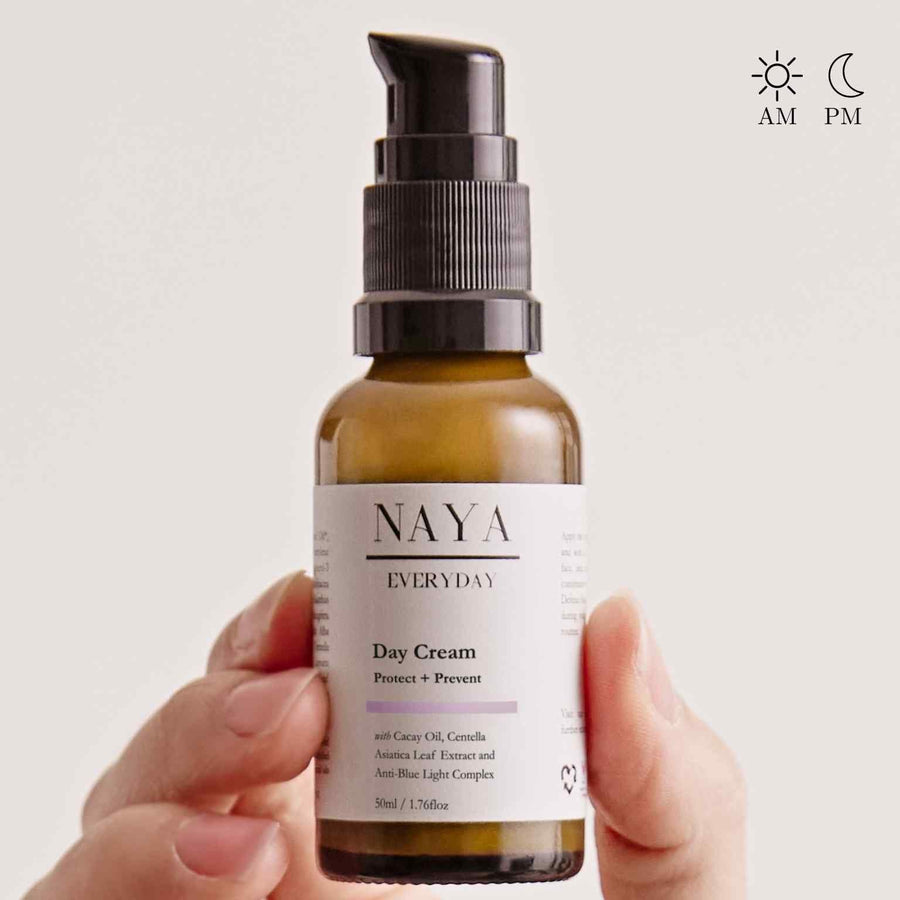
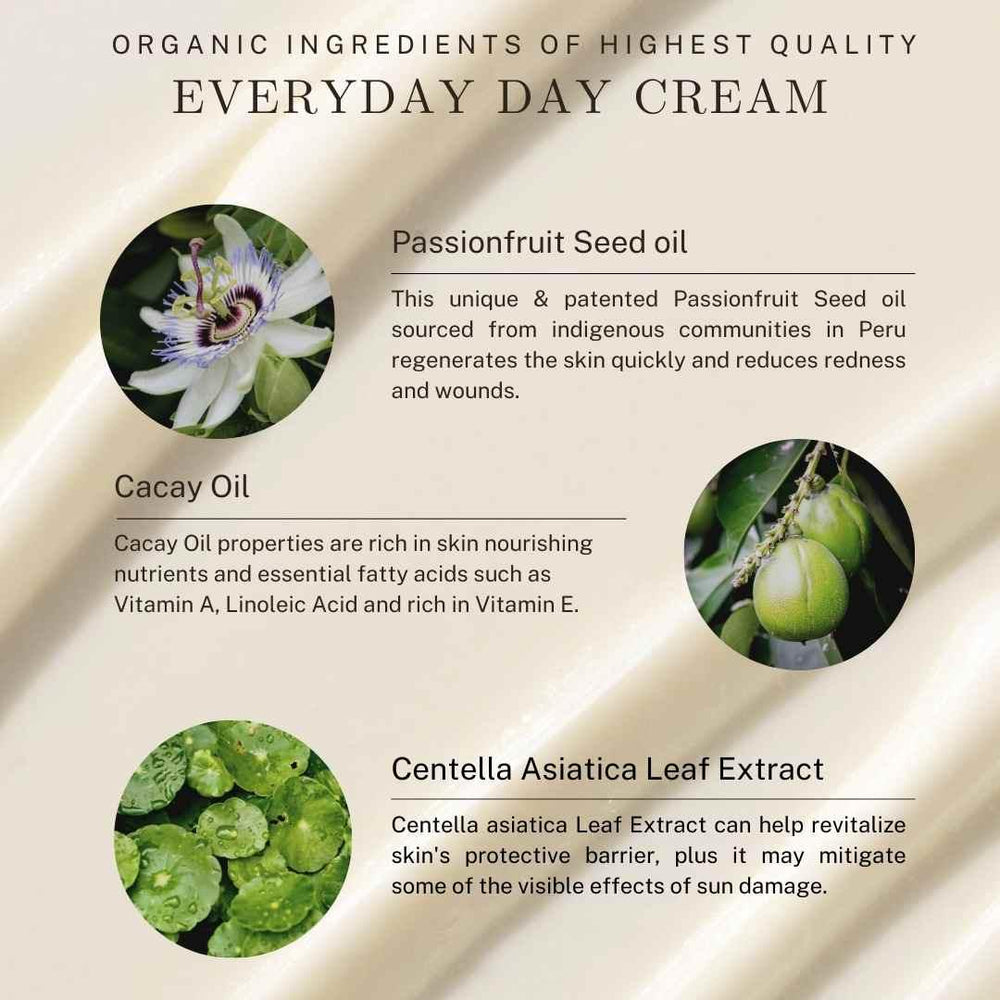
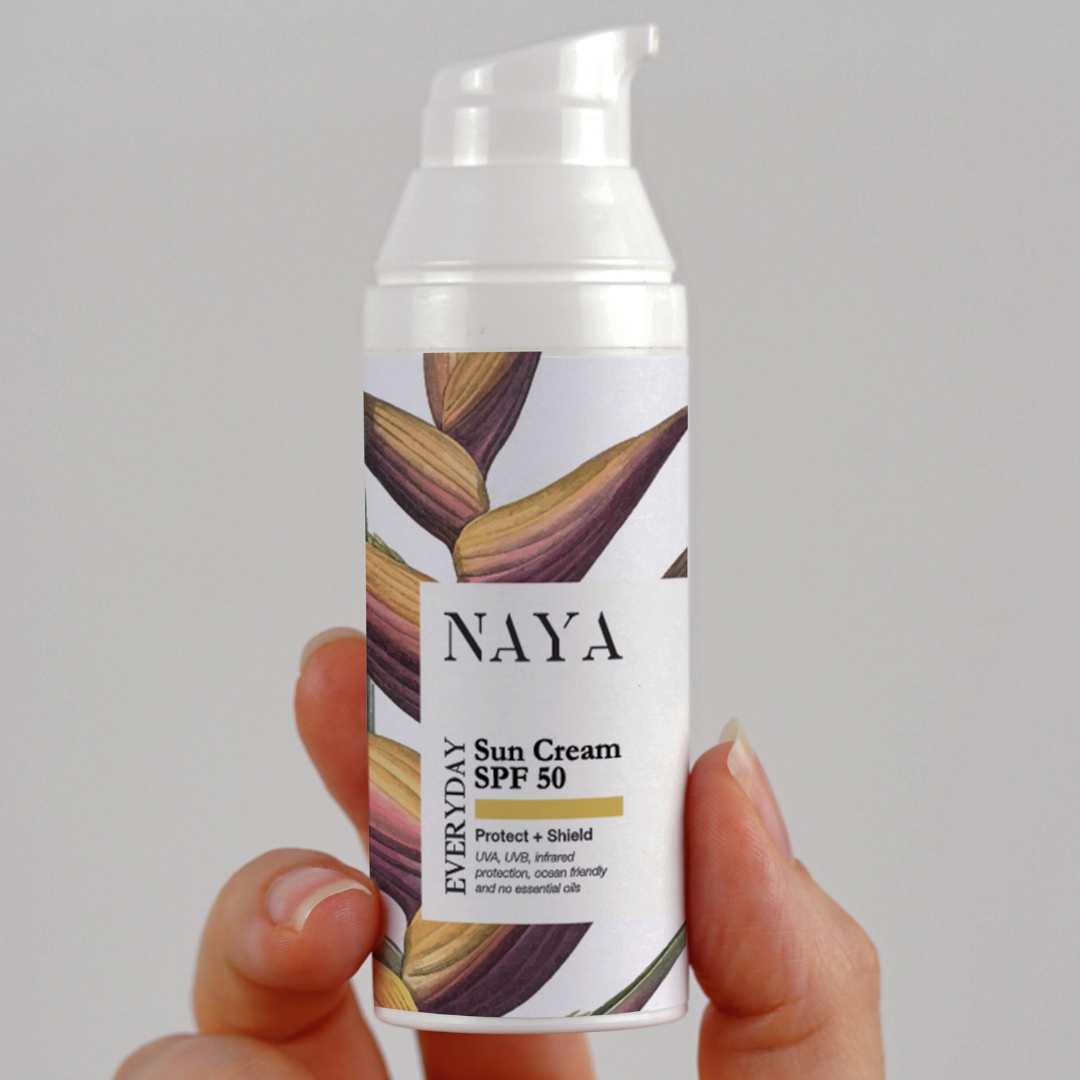
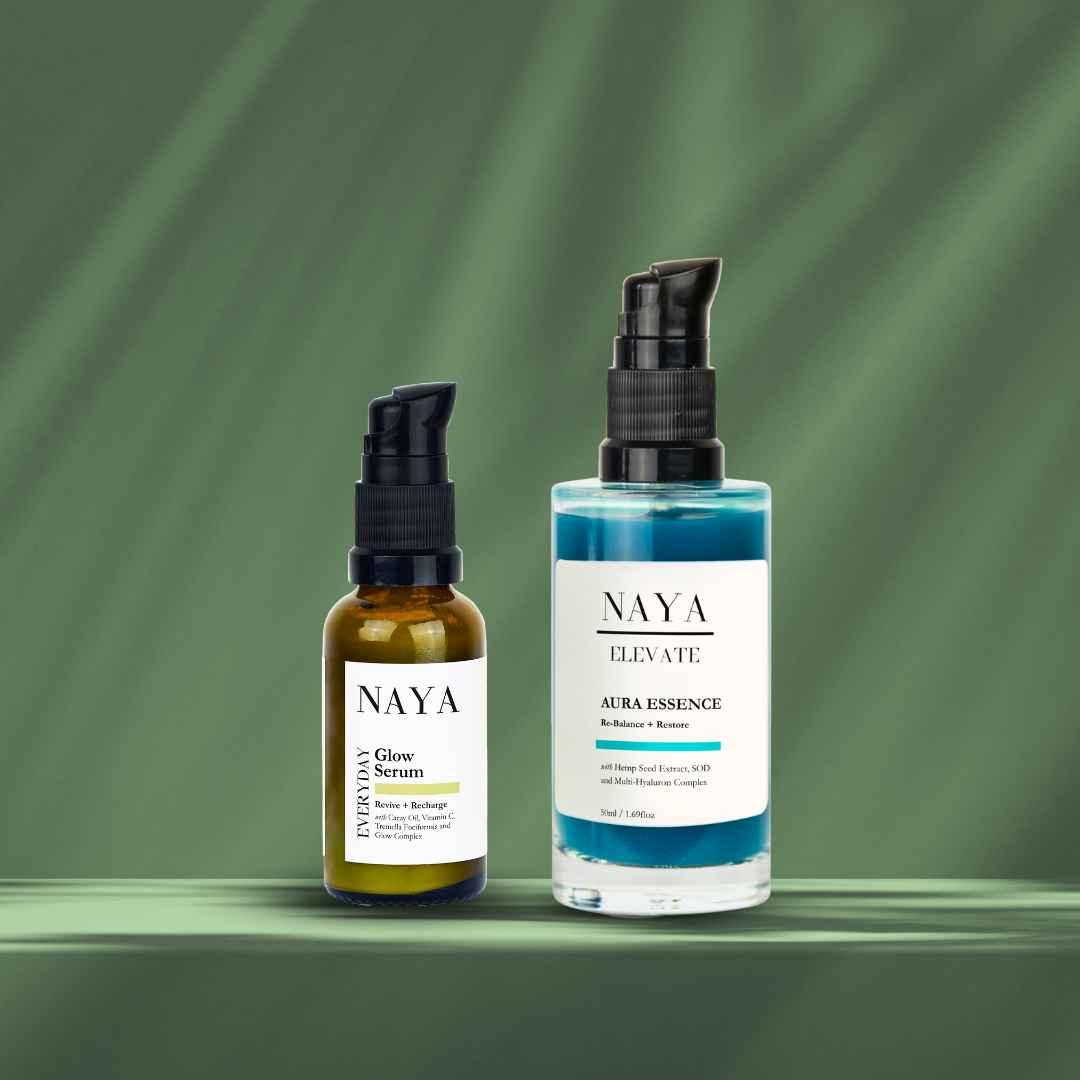




Leave a comment